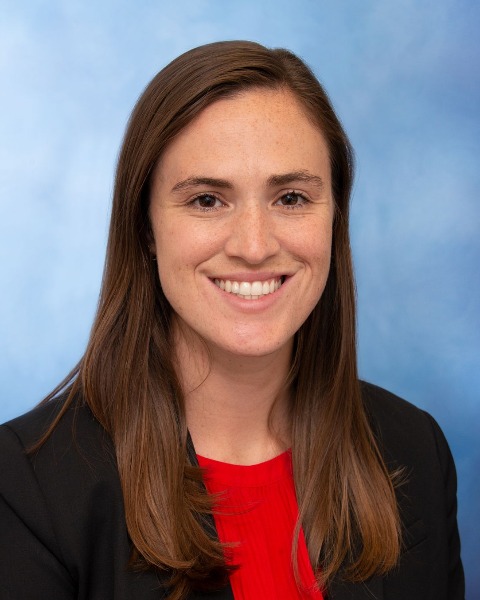Back
Introduction: Persons with Disabilities (PWD) are viewed by society and health care providers as asexual. Providers often do not address sexual health with PWD. This has contributed to misconceptions among PWD leading to poor sexual confidence, unintended pregnancies, increased risk of sexually transmitted illnesses and sexual exploitation. While PWD may experience differences in sexual function, they can have satisfying sex lives. It is crucial that health care providers offer sexual health education and care that considers the neurobiopsychosocial context of PWD. To inform provider knowledge and culturally sensitive sexual health care delivery, we reviewed existing literature on these topics.
Methods: A scoping literature review of articles published between 1/1/2005 and 1/1/2022 was conducted using PubMed with search terms: Spina Bifida, Multiple Sclerosis, Spinal Cord Injury, Cerebral Palsy, Parkinson’s, Disabilities, and sexual, sexual function, quality of life, perceptions, attitudes, physician, physician attitudes, physician perceptions, or cultural. Authors independently reviewed these for inclusion or exclusion criteria, with discrepancies resolved by team discussion. Of the 959 relevant articles, 63 met all inclusion criteria.
Results: PWD experience common neurologic-related sexual concerns including erectile and ejaculatory dysfunction, vaginal dryness, and diminished orgasms, while some experience orgasms originating in different areas of the body. Functional concerns include bowel and bladder incontinence during sex, positioning to prevent pain, fatigue, and medication side-effects. Psychological concerns include low confidence and difficulties with partner communication. Emerging sexual orientation research suggests a trend toward a higher proportion of PWD identifying as bisexual than the general population. Providers report addressing sexual health as within their scope of practice but feel uncomfortable doing so.
Conclusions: It is both critical and feasible for providers to deliver culturally sensitive sexual health care for PWD. Providers should learn to discuss sexual function and challenges with their PWD patients, recognize their neurobiopsychosocial reality, encourage body mapping of new erogenous body areas, discuss positioning options and assistive devices, and encourage partner communication. Further research is needed to further define preferences for culturally sensitive sexual health care relevant to each disability type and to create resources for sexual health support. SOURCE OF
Funding: None
Moderated Poster Session
Session: MP21: Diversity, Equity & Inclusion: Health Equity & Outcomes II
MP21-16: Providing Culturally Sensitive Sexual Medicine for Persons with Disabilities
Friday, April 28, 2023
3:30 PM – 5:30 PM CST
Location: S404C

Rebecca Howland, MD
University of Michigan
Poster Presenter(s)
Introduction: Persons with Disabilities (PWD) are viewed by society and health care providers as asexual. Providers often do not address sexual health with PWD. This has contributed to misconceptions among PWD leading to poor sexual confidence, unintended pregnancies, increased risk of sexually transmitted illnesses and sexual exploitation. While PWD may experience differences in sexual function, they can have satisfying sex lives. It is crucial that health care providers offer sexual health education and care that considers the neurobiopsychosocial context of PWD. To inform provider knowledge and culturally sensitive sexual health care delivery, we reviewed existing literature on these topics.
Methods: A scoping literature review of articles published between 1/1/2005 and 1/1/2022 was conducted using PubMed with search terms: Spina Bifida, Multiple Sclerosis, Spinal Cord Injury, Cerebral Palsy, Parkinson’s, Disabilities, and sexual, sexual function, quality of life, perceptions, attitudes, physician, physician attitudes, physician perceptions, or cultural. Authors independently reviewed these for inclusion or exclusion criteria, with discrepancies resolved by team discussion. Of the 959 relevant articles, 63 met all inclusion criteria.
Results: PWD experience common neurologic-related sexual concerns including erectile and ejaculatory dysfunction, vaginal dryness, and diminished orgasms, while some experience orgasms originating in different areas of the body. Functional concerns include bowel and bladder incontinence during sex, positioning to prevent pain, fatigue, and medication side-effects. Psychological concerns include low confidence and difficulties with partner communication. Emerging sexual orientation research suggests a trend toward a higher proportion of PWD identifying as bisexual than the general population. Providers report addressing sexual health as within their scope of practice but feel uncomfortable doing so.
Conclusions: It is both critical and feasible for providers to deliver culturally sensitive sexual health care for PWD. Providers should learn to discuss sexual function and challenges with their PWD patients, recognize their neurobiopsychosocial reality, encourage body mapping of new erogenous body areas, discuss positioning options and assistive devices, and encourage partner communication. Further research is needed to further define preferences for culturally sensitive sexual health care relevant to each disability type and to create resources for sexual health support. SOURCE OF
Funding: None
